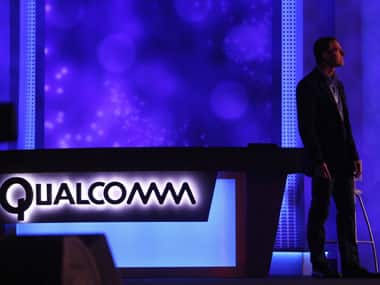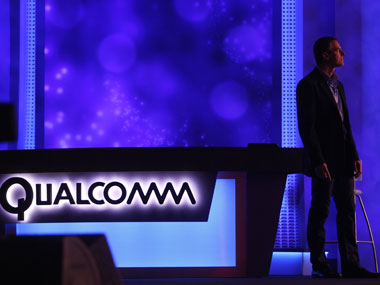The 4G battle is heating up. Barely a day after Bharti Airtel launched the first 4G broadband service in Kolkata, and The Economic Times announced that Airtel may be trying to buy Qualcomm’s broadband wireless access (BWA) licences, we now hear that the department of telecom (DoT) is trying to curtail Qualcomm’s licence period from 20 years to 18.
According a Business Standard report , the Department of Telecommunication is considering reducing the licence period for Qualcomm on a representation from its competitors that giving it 20 years means doing it a favour.
[caption id=“attachment_274169” align=“alignleft” width=“380” caption=“Reliance Industries, which holds licences for all 22 circles in India through Infotel Broadband, has been lobbying for reducing Qualcomm’s validity period for a while now. AFP”]
 [/caption]
[/caption]
Reliance Industries, which holds licences for all 22 circles in India through Infotel Broadband, and which is yet to roll out its services two years after it won the bid, has been lobbying for reducing Qualcomm’s validity period for a while now. This is because the spectrum auction was held in June 2010, which means that technically the licences should be valid only till 2030, as in the case with Reliance Industries. However, since Qualcomm only got its licence for BWA spectrum in March this year - the Department of Telecommunication had cancelled the US company’s permits last year for outstanding licence fees owed by one of the company’s joint venture partners-(Tulip Telecom) it stands to remains valid for the next 20 years, ie, till 2032, two years more than Reliance.
In an earlier Firstpost report, we noted how DoT used various pretexts to delay the licence to Qualcomm. This matter got resolved only after Qualcomm offered to pay Tulip’s purported dues, and the Telecom Disputes Settlement Tribunal ruled in favour of Qualcomm receiving the licence for the spectrum it won in 2010.
Impact Shorts
More ShortsHowever, having received the licence two years late, is it better to curtail its validity to 18 years just to give Reliance a level playing field?
Perhaps a better way would be to simply rule that the validity of the spectrum licence begins from they day they begin work on their projects. The zero date. Or when they begin their services.
)